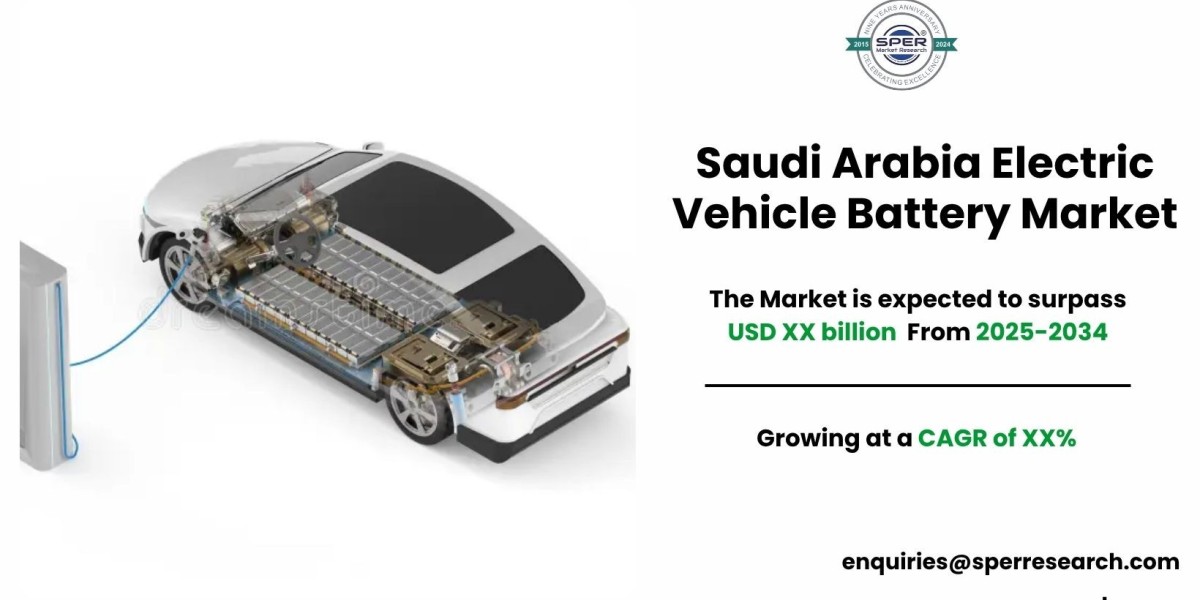The rechargeable energy storage device that drives an EV's electric motor is called an EV battery. EV batteries, which usually use lithium-ion technology, which is renowned for its high energy density, efficiency, and extended lifespan, store electricity in contrast to conventional internal combustion engines. These batteries power the car's auxiliary systems and allow it to run. External electric sources are used to charge them, and regenerative systems allow for partial recharging while braking. The battery's capacity, measured in kilowatt-hours (kWh), determines the driving range. Continuous advancements seek to improve battery performance, shorten charging times, and cut costs for mass-market viability as EV adoption rises.
According to SPER market research, ‘Saudi Arabia Electric Vehicle Battery Market Size- By Battery type, By Vehicle type, By Propulsion type- Regional Outlook, Competitive Strategies and Segment Forecast to 2033’ state that the Saudi Arabia Electric Vehicle Battery Market is estimated to reach USD XX million by 2033 with a CAGR of XX%..
Drivers:
Saudi Arabia's Vision 2030 plan, which includes multibillion-dollar investments and goals to produce more than 300,000 vehicles a year, is driving the growth of the EV battery industry. The Public Investment Fund-backed expansion of domestic EV companies like Ceer and Lucid, as well as the creation of industrial zones in NEOM and King Abdullah Economic City, are all promoting supply-chain localization. In order to sustain 500,000 batteries annually, Aramco's lithium extraction partnership with Ma'aden plans to begin commercial production by 2027. Furthermore, the kingdom's battery demand is being stimulated and adoption hurdles are being lowered by the expansion of fast-charging networks and smart mobility initiatives throughout key cities.
Saudi Arabia Electric Vehicle Battery Market Sample in PDF Format, Click Here
Restraints:
Customers are deterred by the high initial cost of EVs and battery replacements, which frequently range from $7,000 to $10,000, particularly in a market where fuel is significantly subsidized. Outside of major cities like Riyadh, Jeddah, and Dammam, charging infrastructure is still lacking, which restricts access and range confidence in smaller towns. Without sophisticated thermal management systems, lithium-ion batteries deteriorate more quickly in Saudi Arabia's harsh summers, which frequently reach temperatures above 50°C. Design and production costs increase as a result. Additionally, expanding maintenance and repair services across the country is hampered by the lack of qualified EV battery service workers.
Riyadh dominates the Saudi Arabia Electric Vehicle Battery Market due to its central role as the country’s political, economic, and infrastructure hub, driving the highest demand and adoption rates. Some of the key market players are Avass Group, CATL, Electromin, EV Metals, General Motors and others.
For More Information, refer to below link: –
Saudi Arabia Electric Vehicle Battery Market Growth
Related Reports:
Saudi Arabia Electric Bike Market Size
Asia Pacific Courier, Express and Parcel Market Size
Follow Us –
LinkedIn | Instagram | Facebook | Twitter
Contact Us:
Sara Lopes, Business Consultant — USA
SPER Market Research
enquiries@sperresearch.com
+1–347–460–2899






